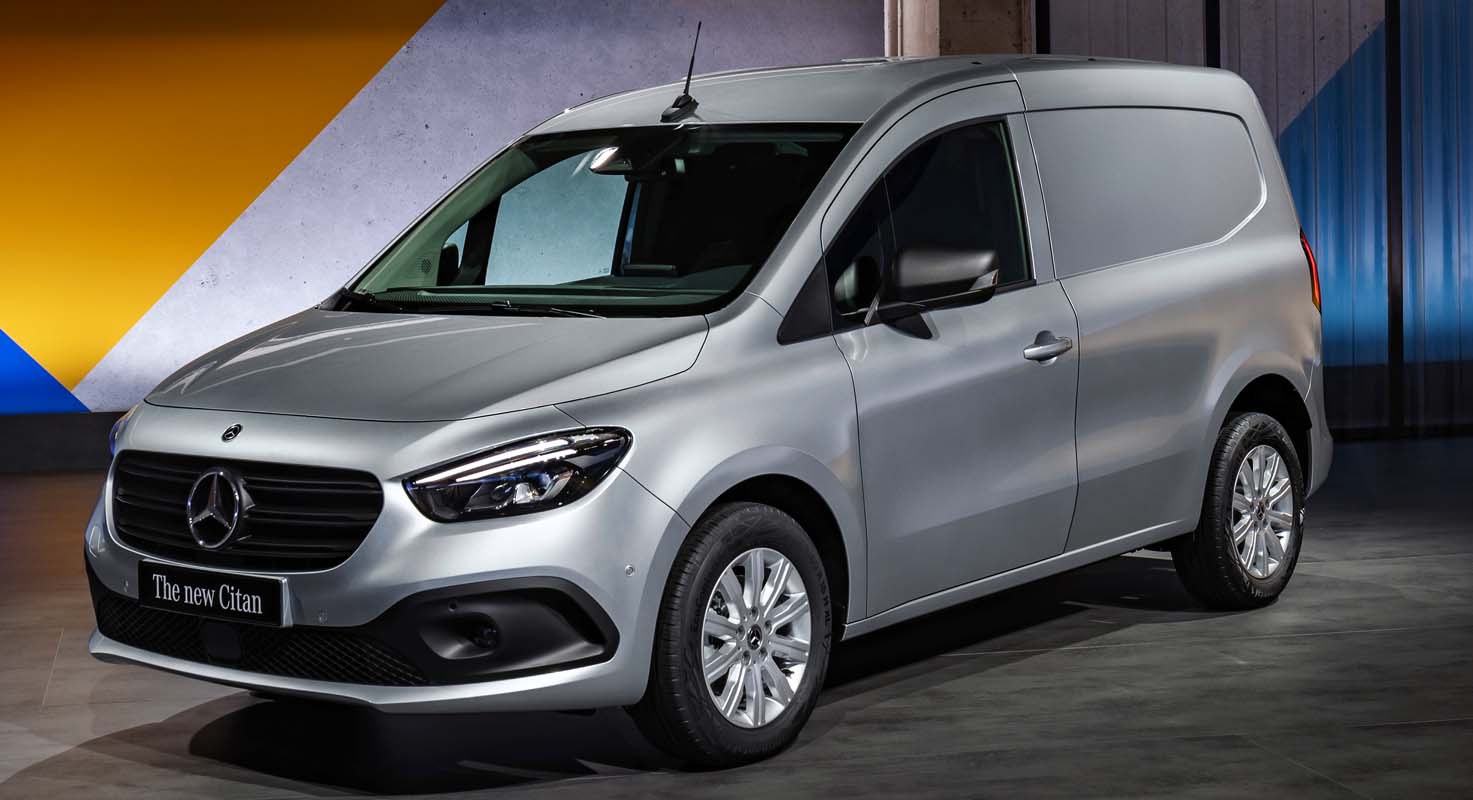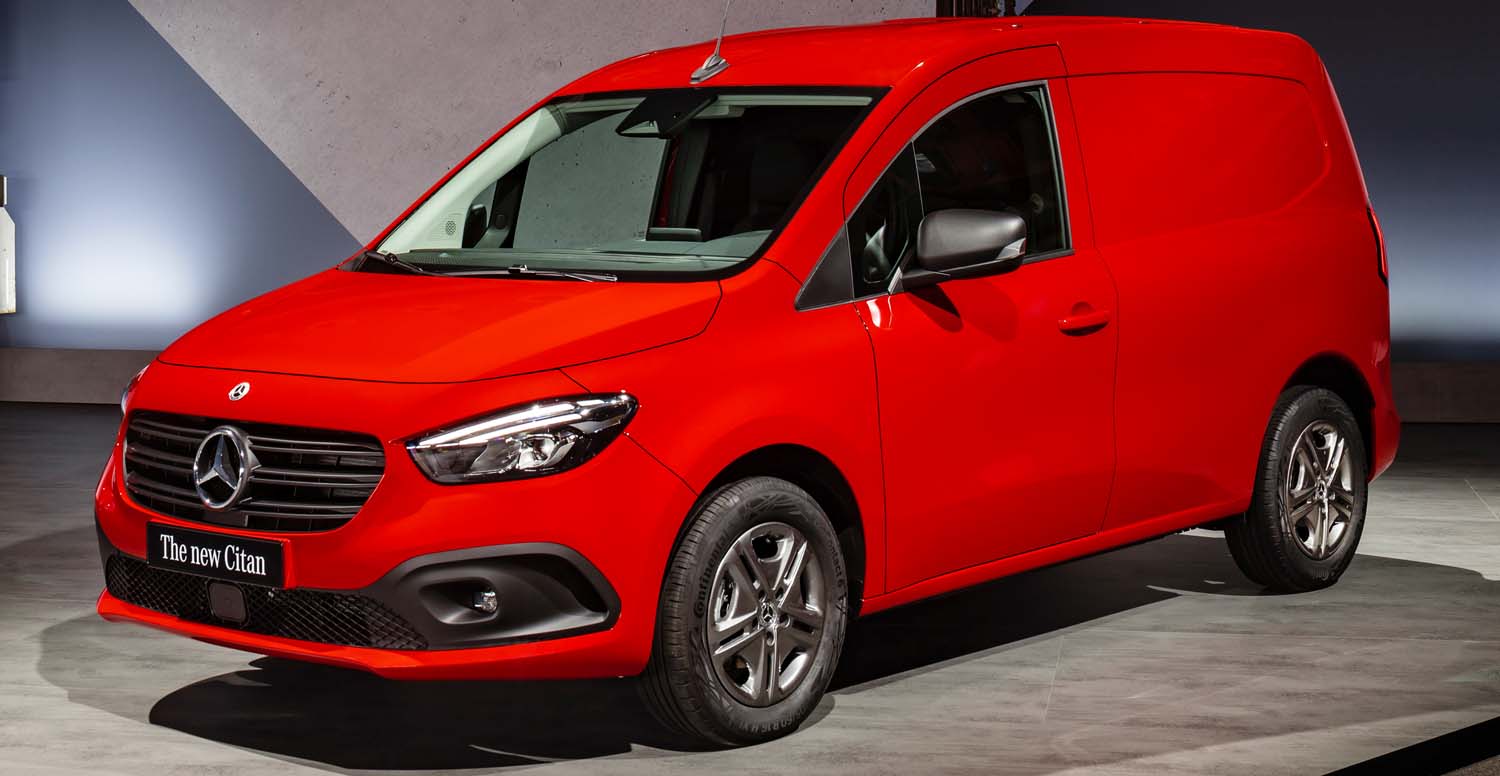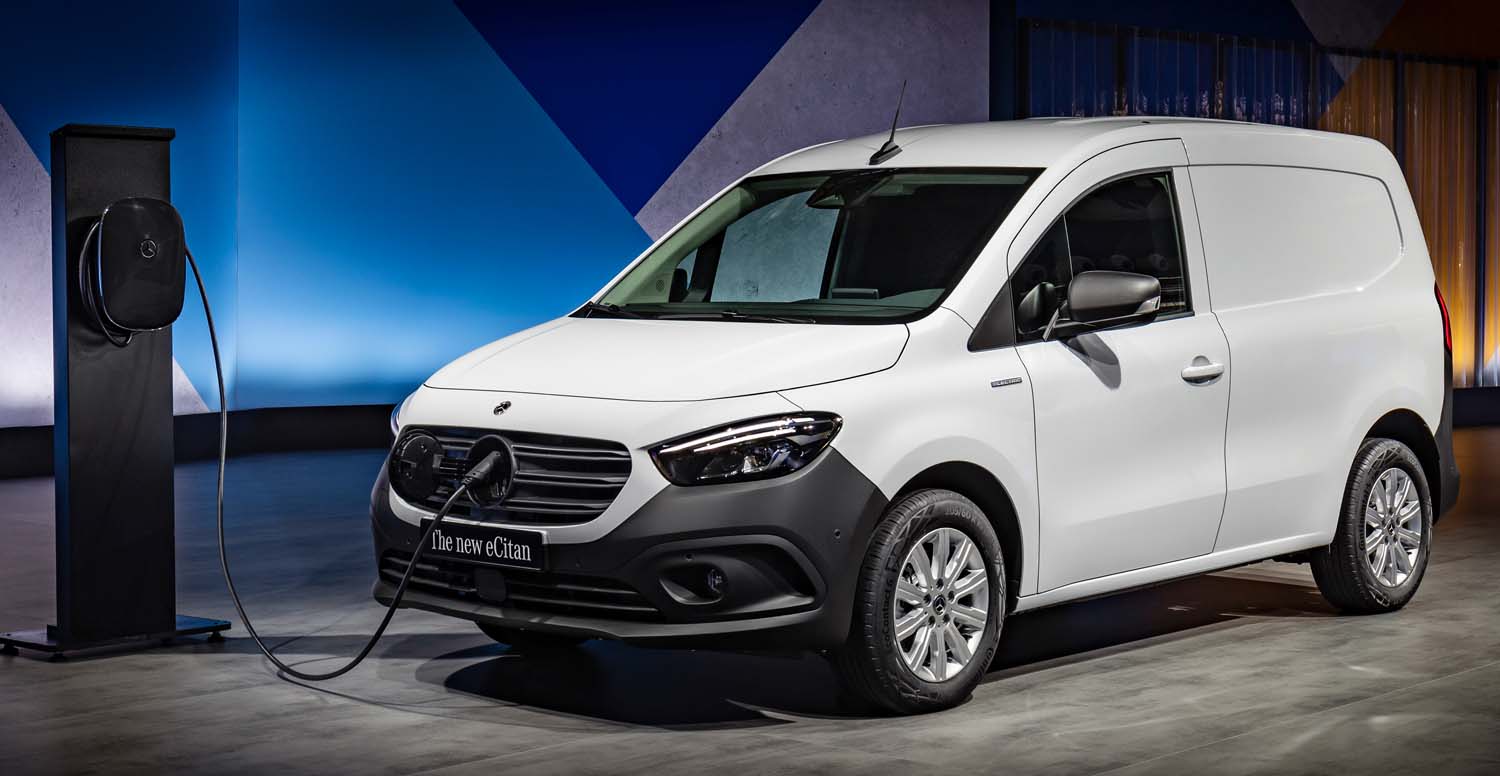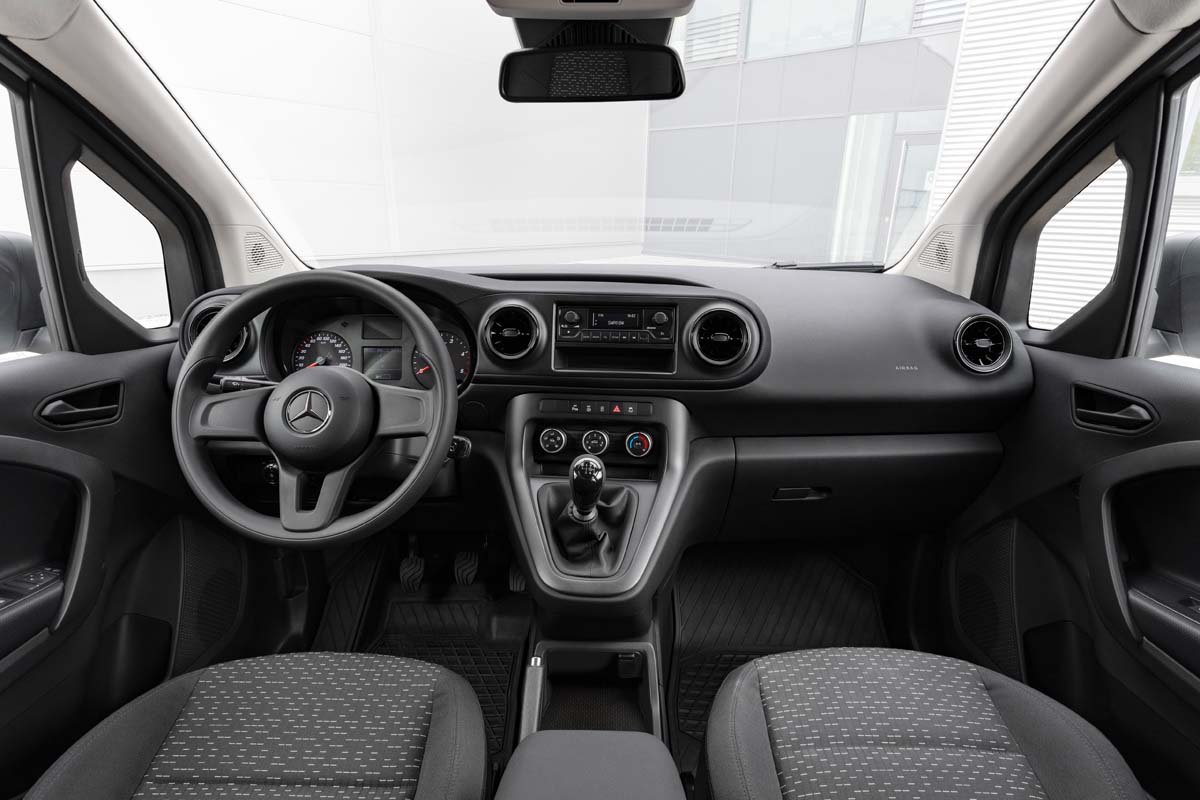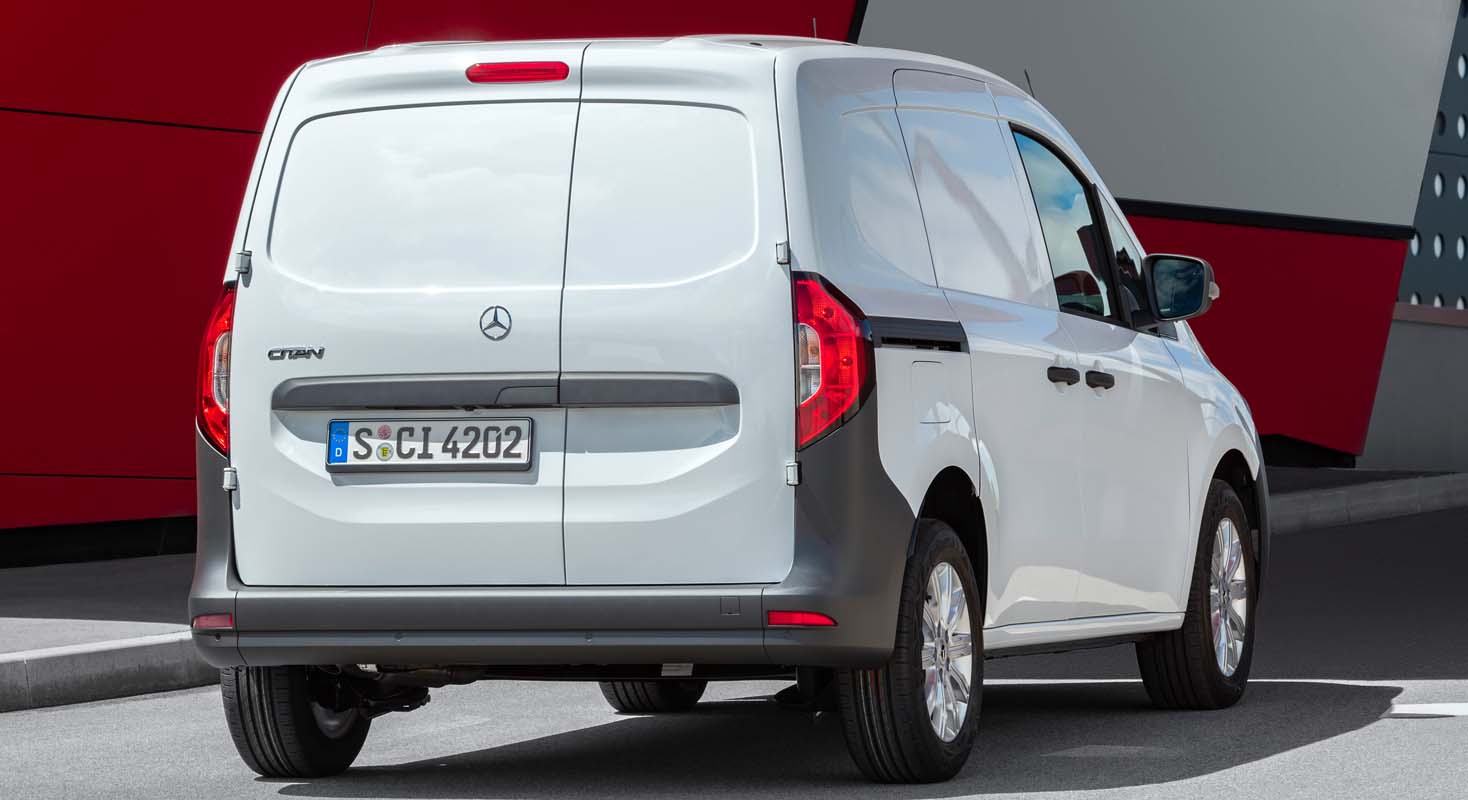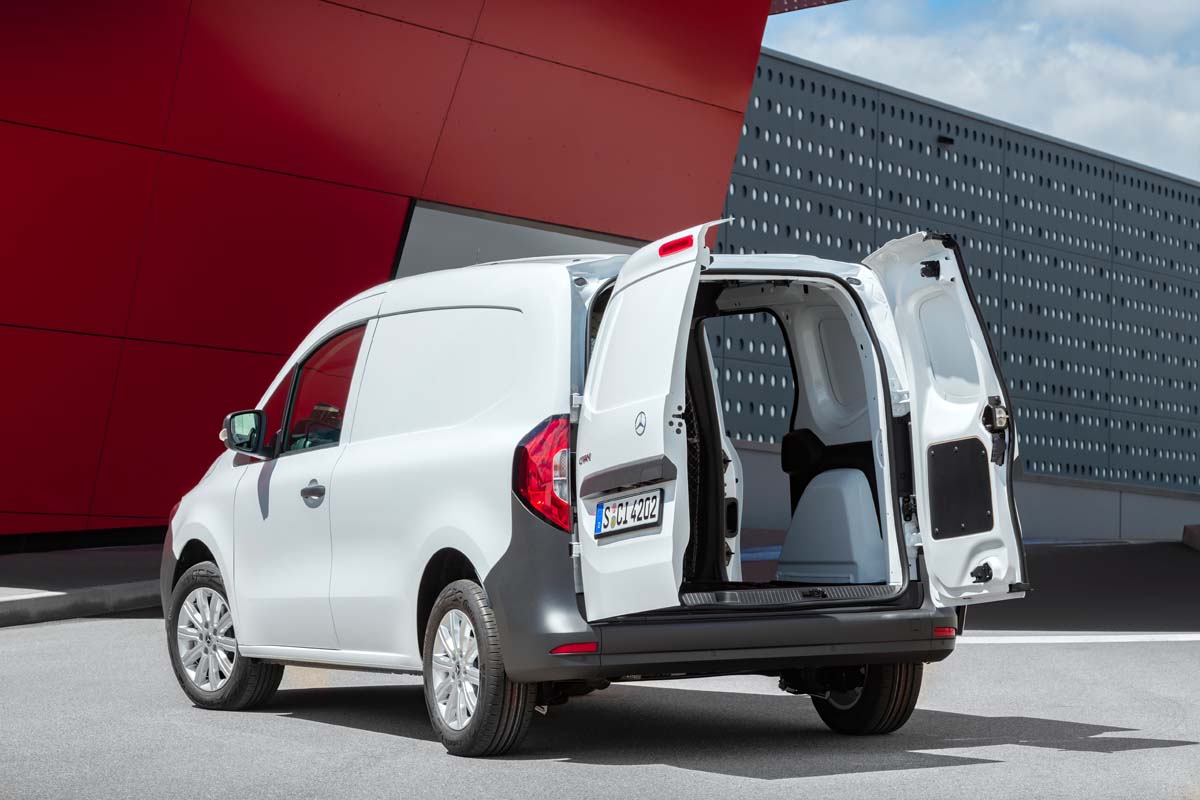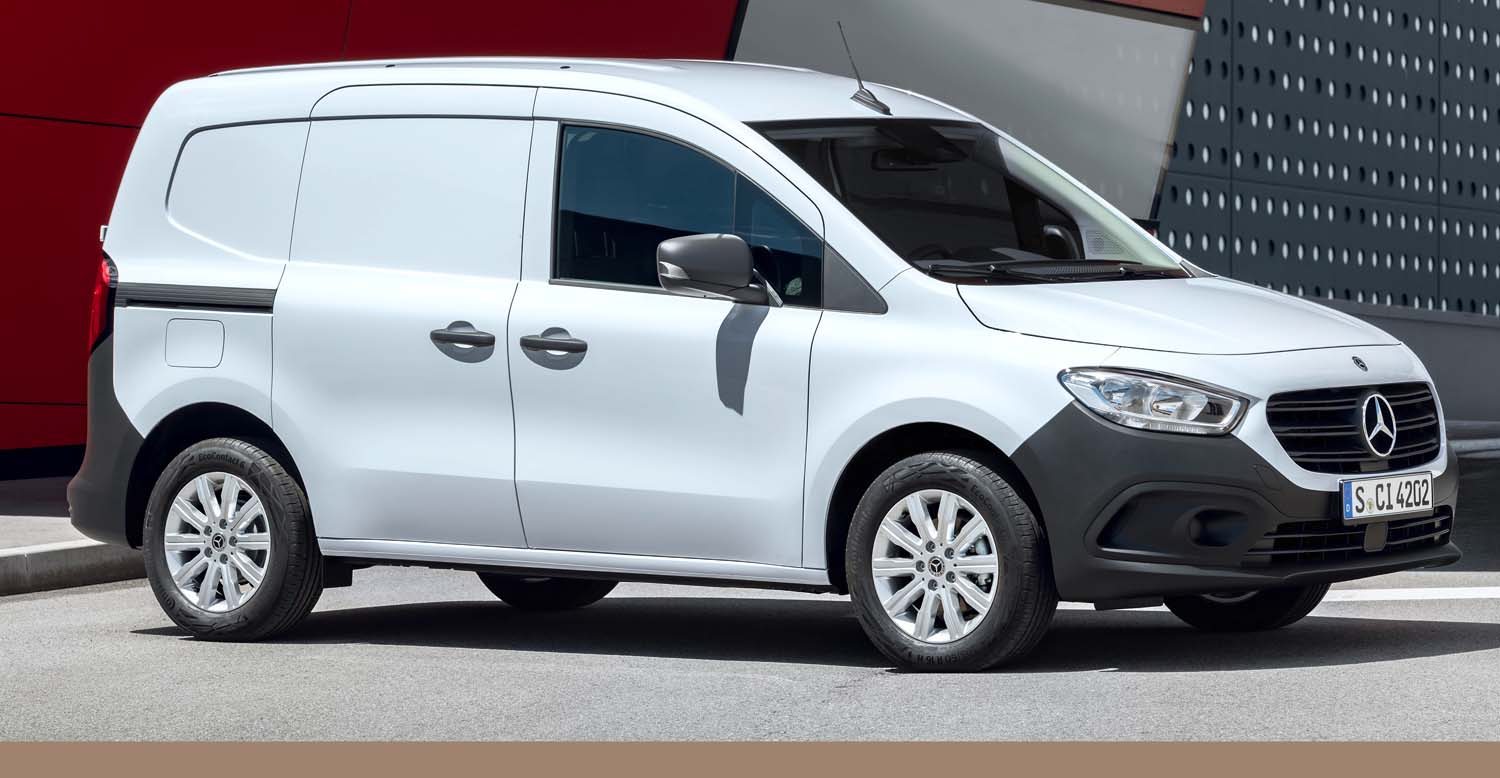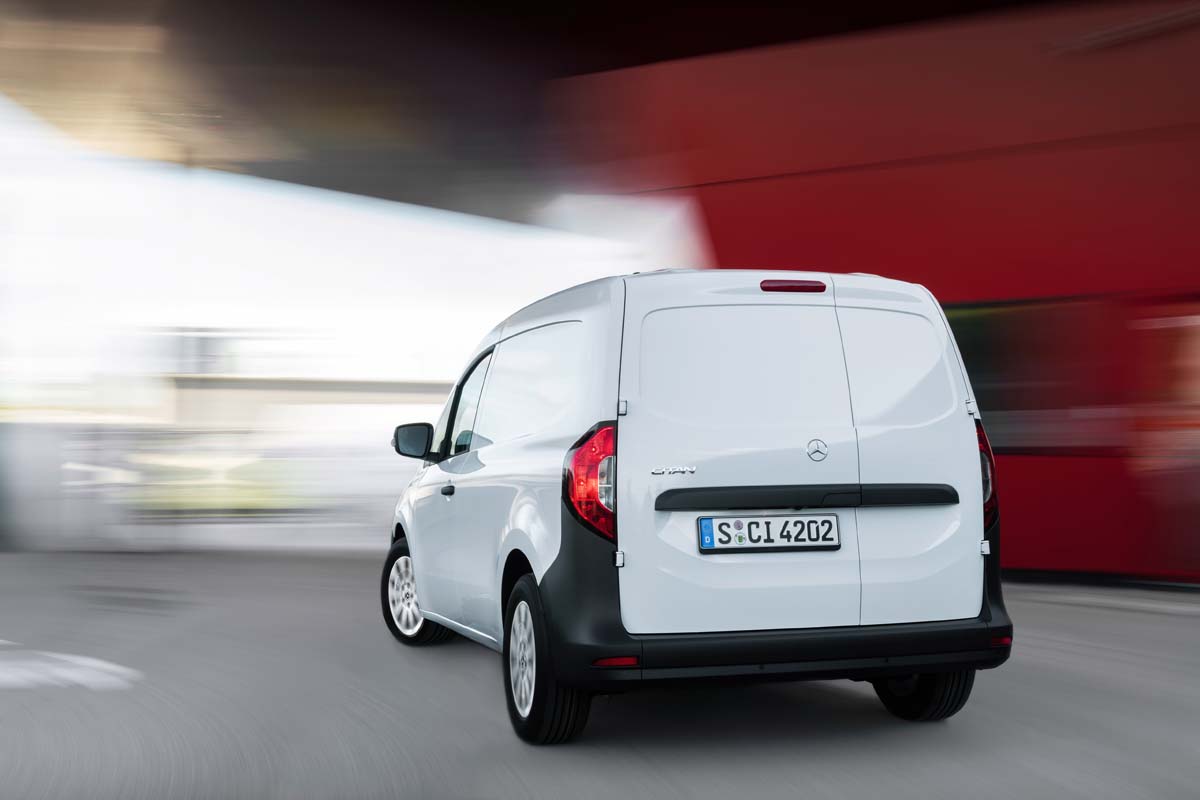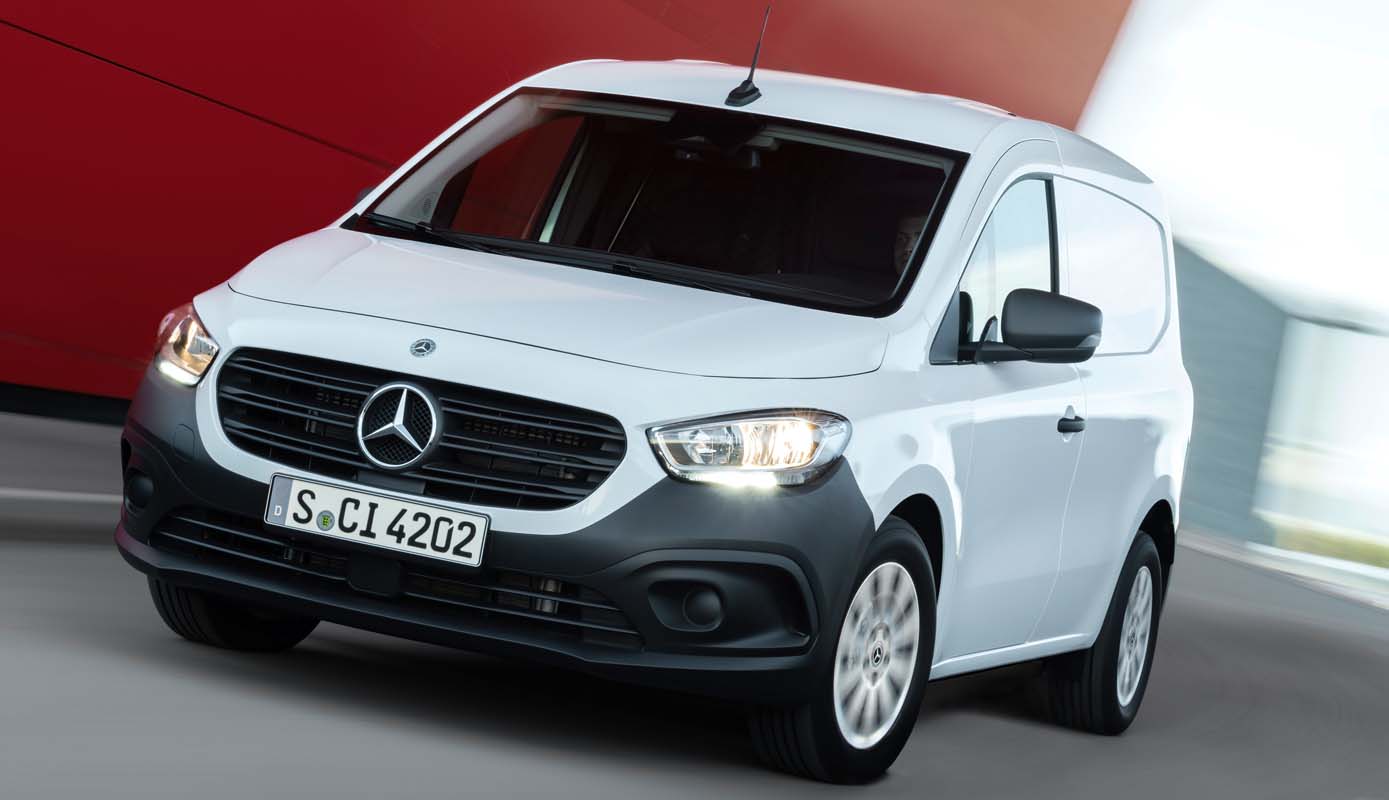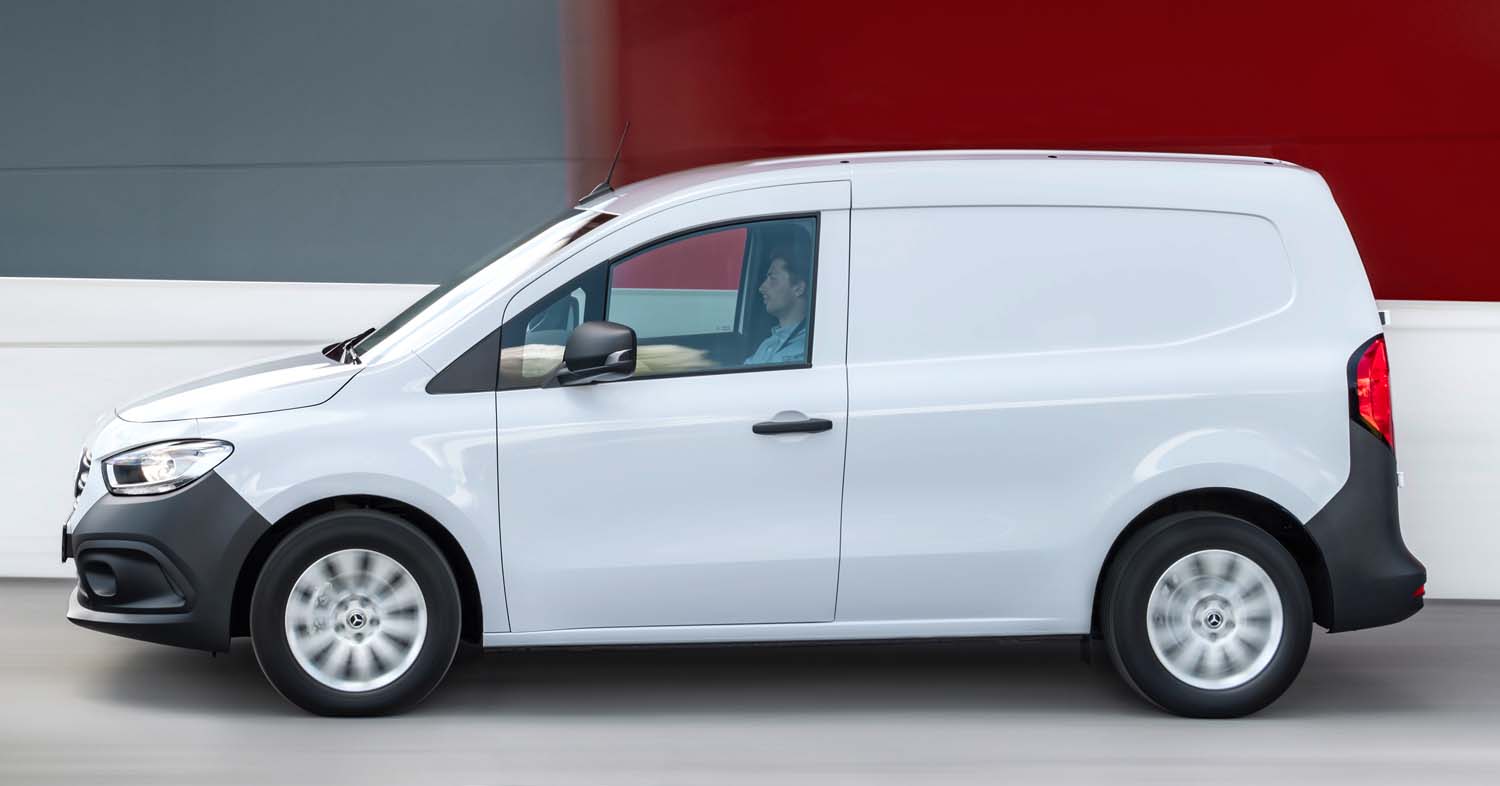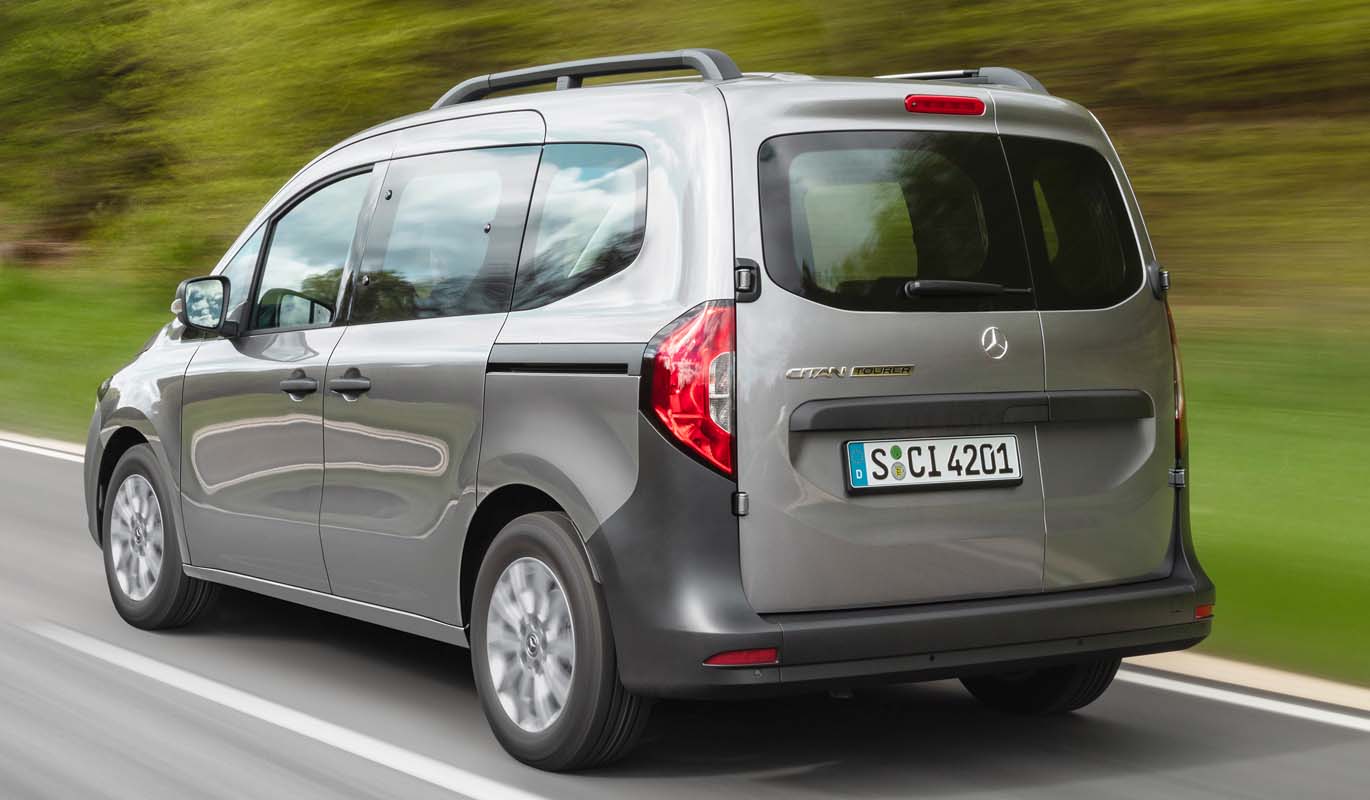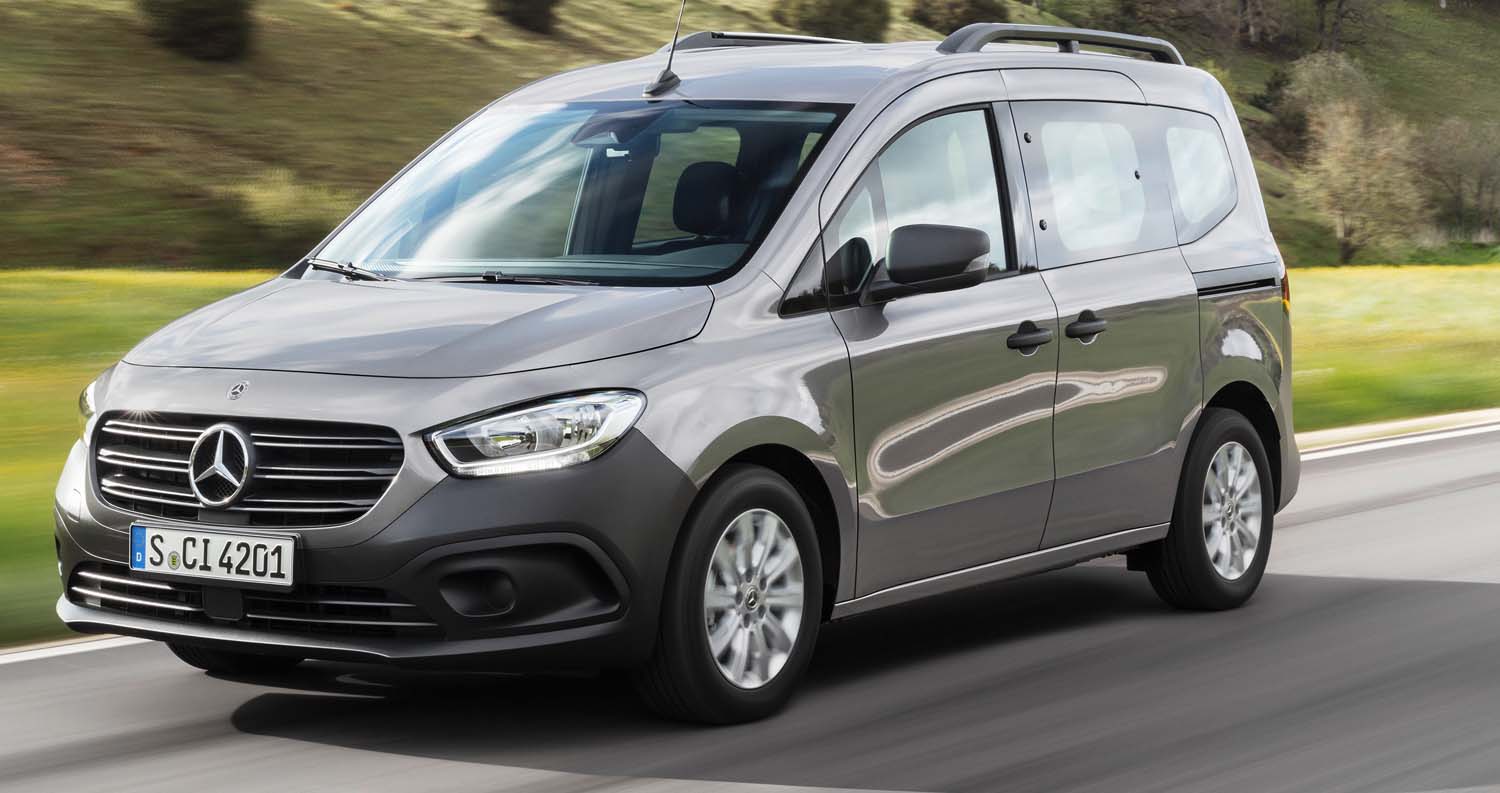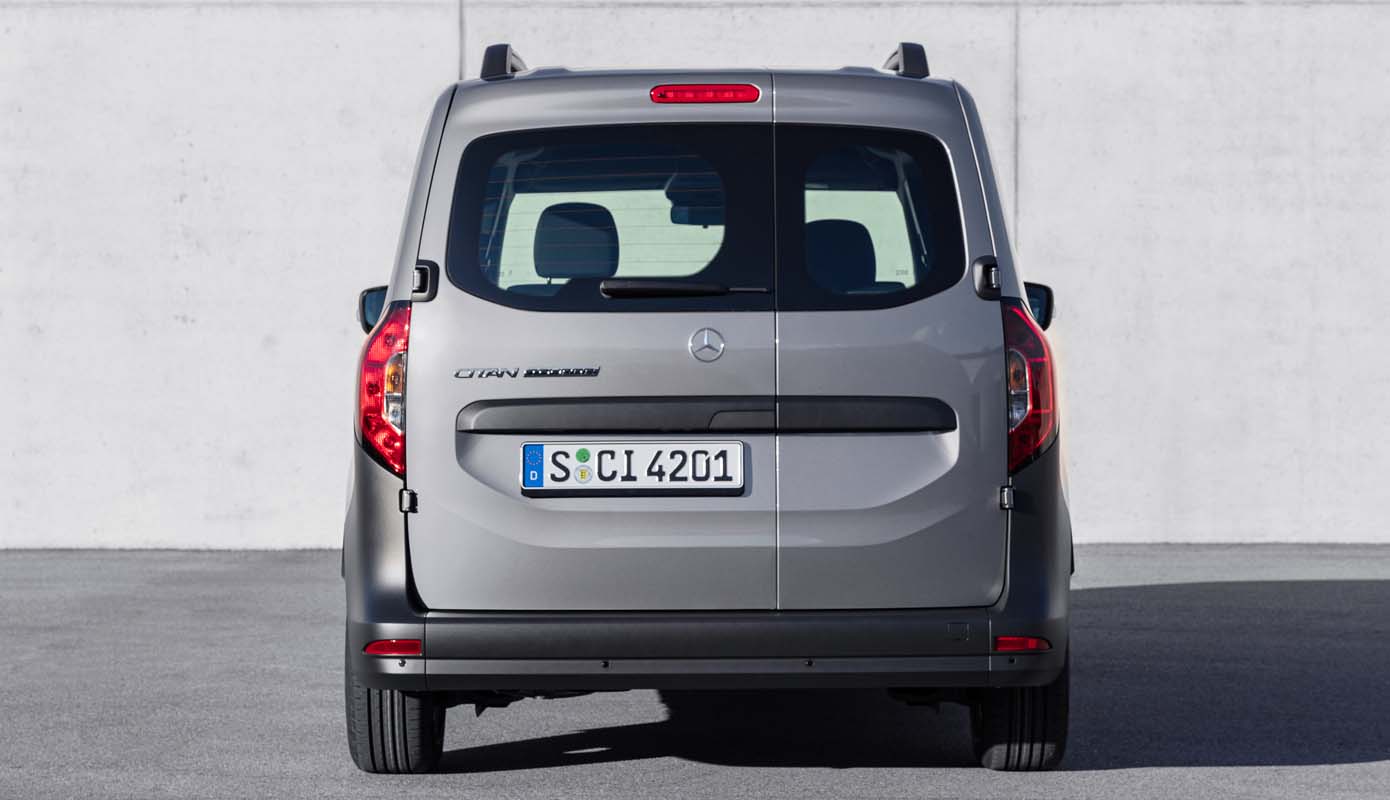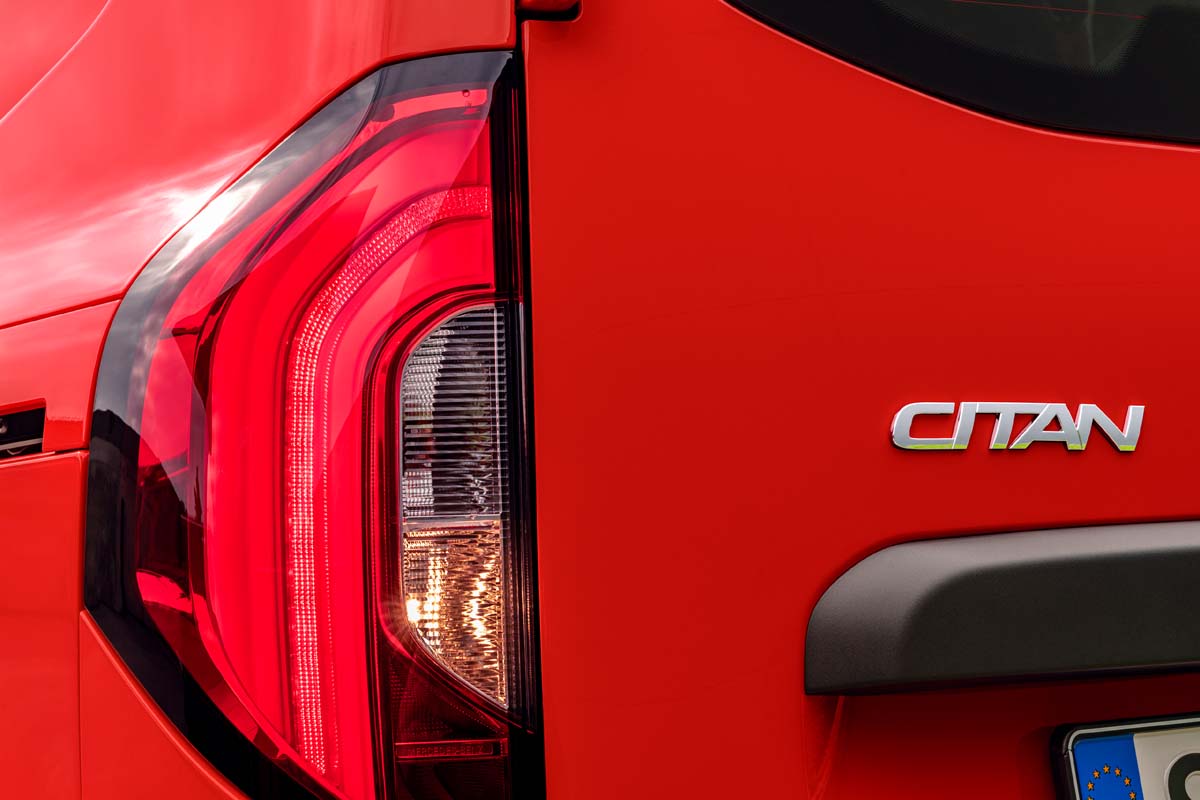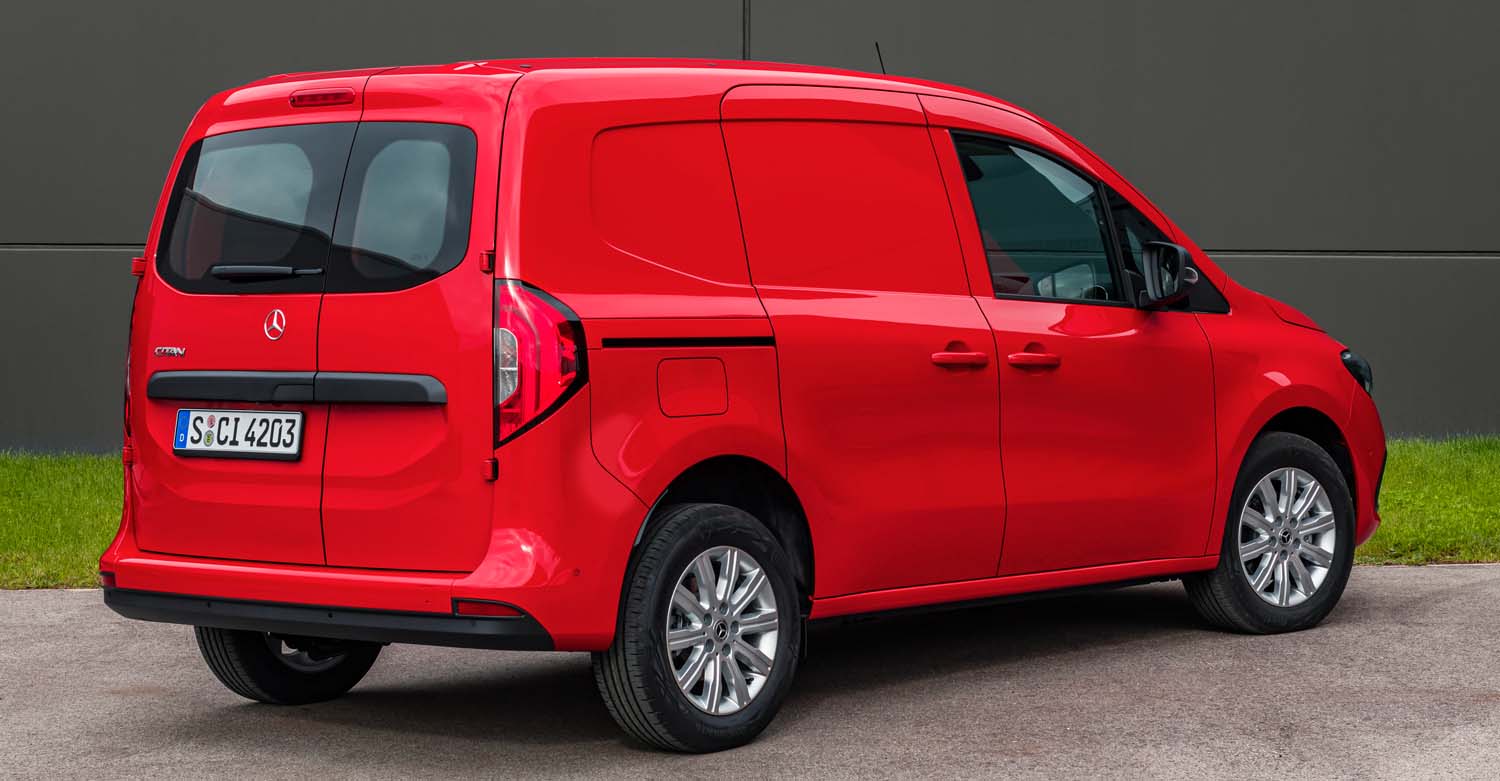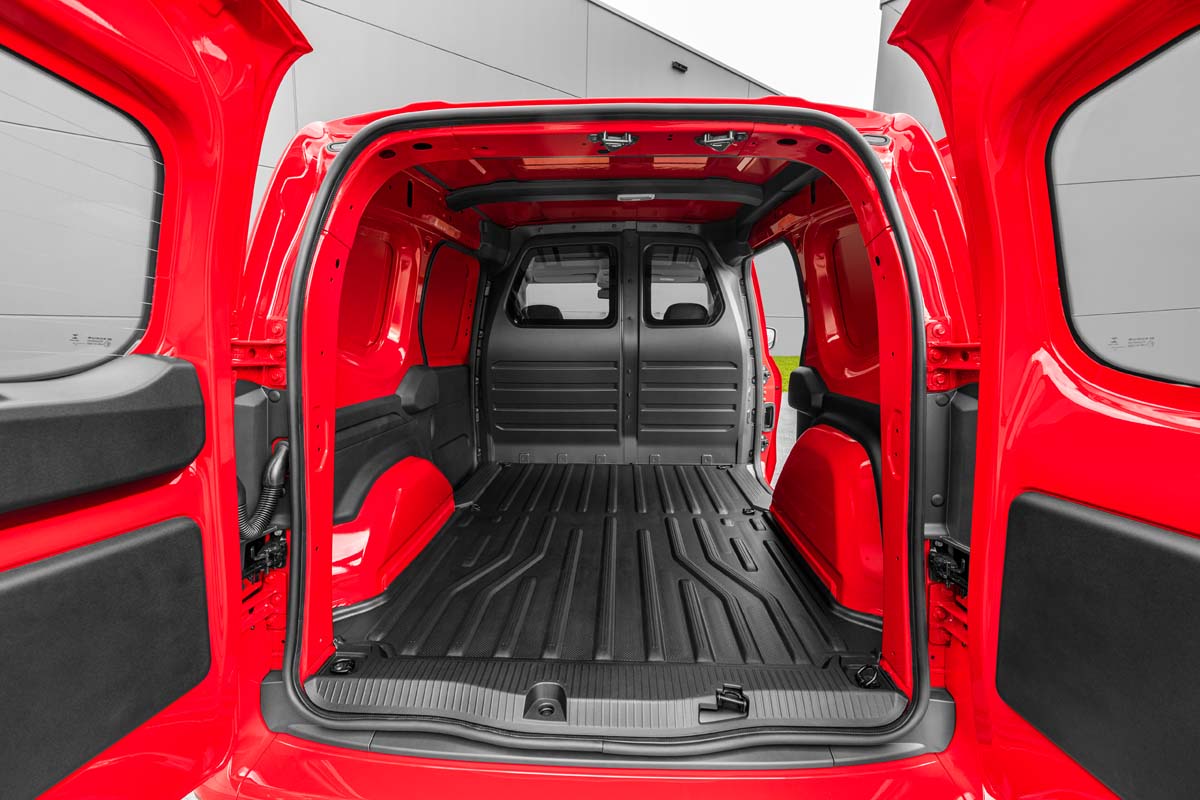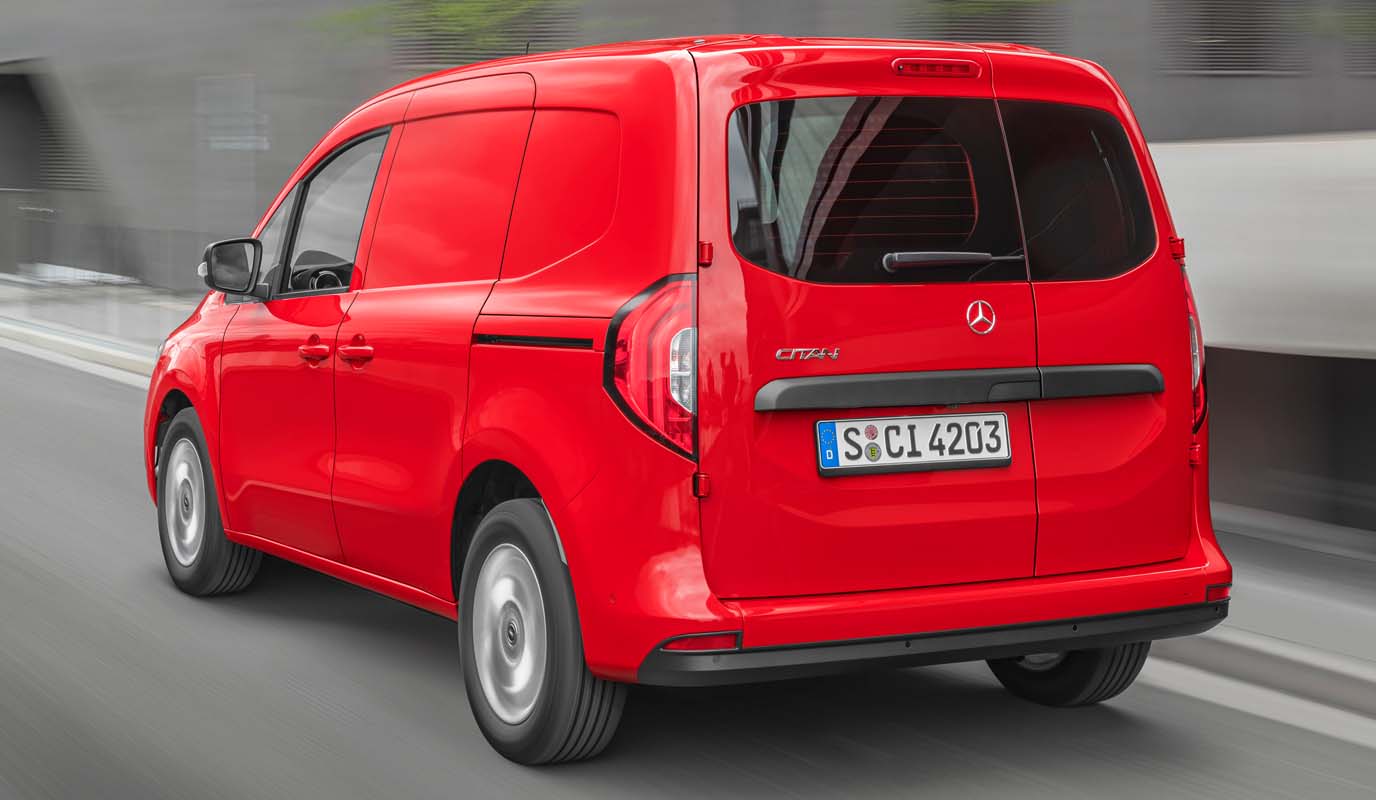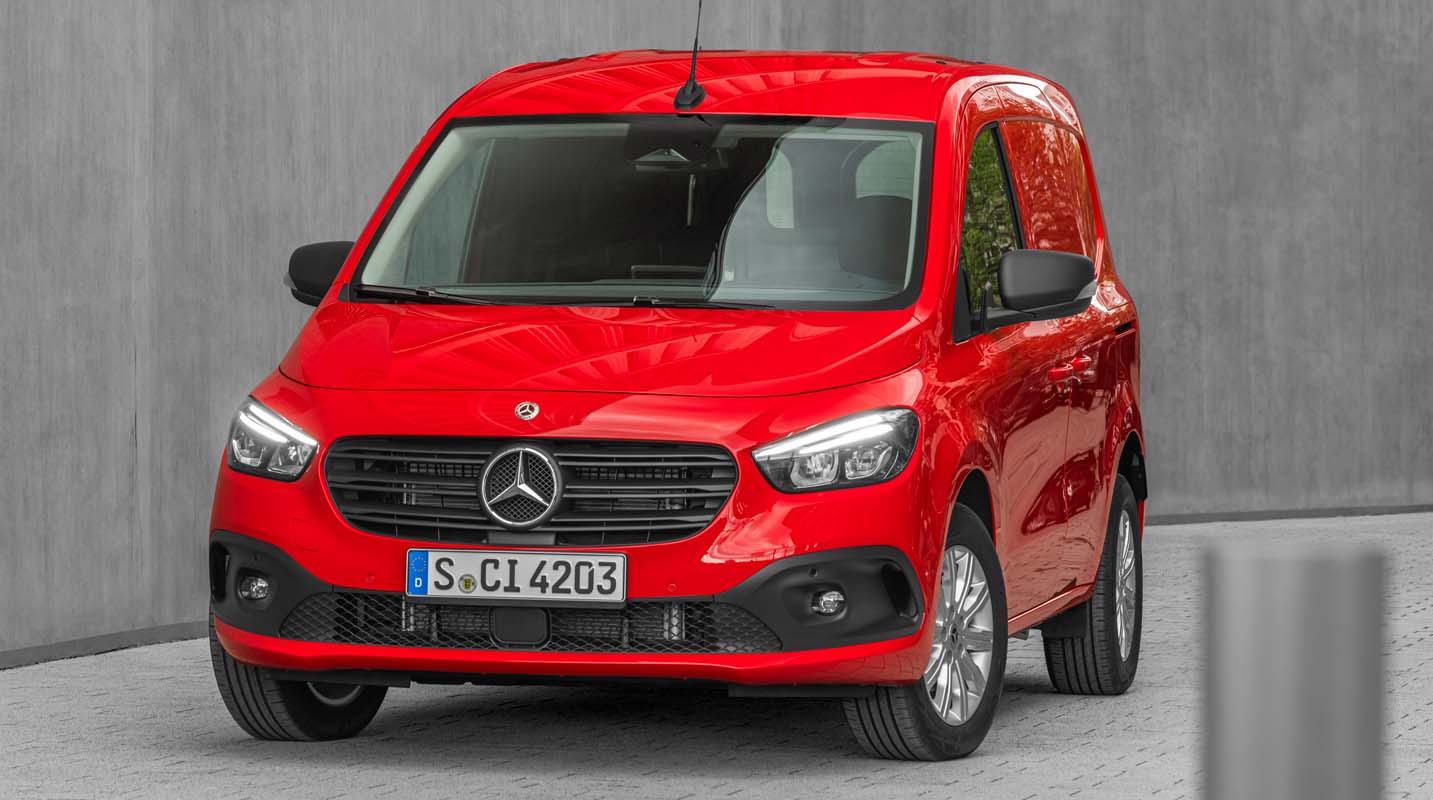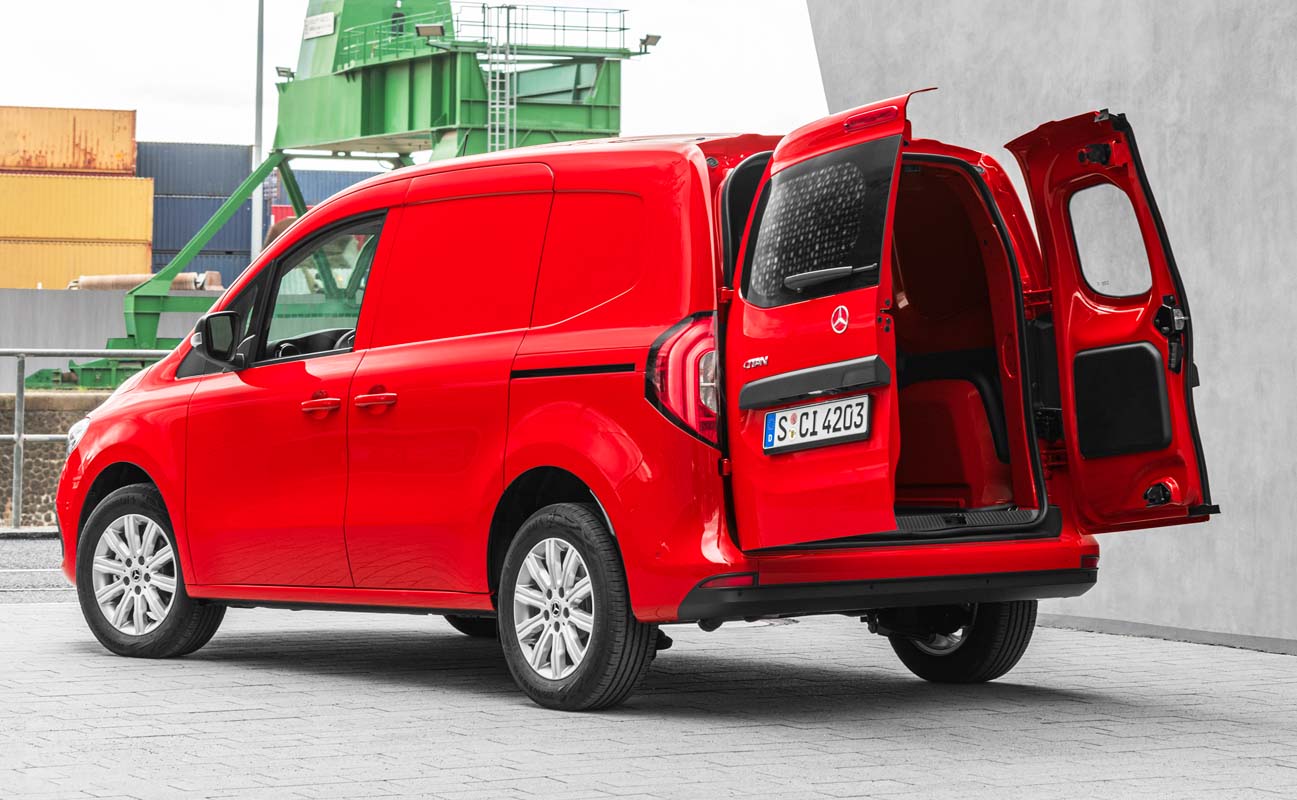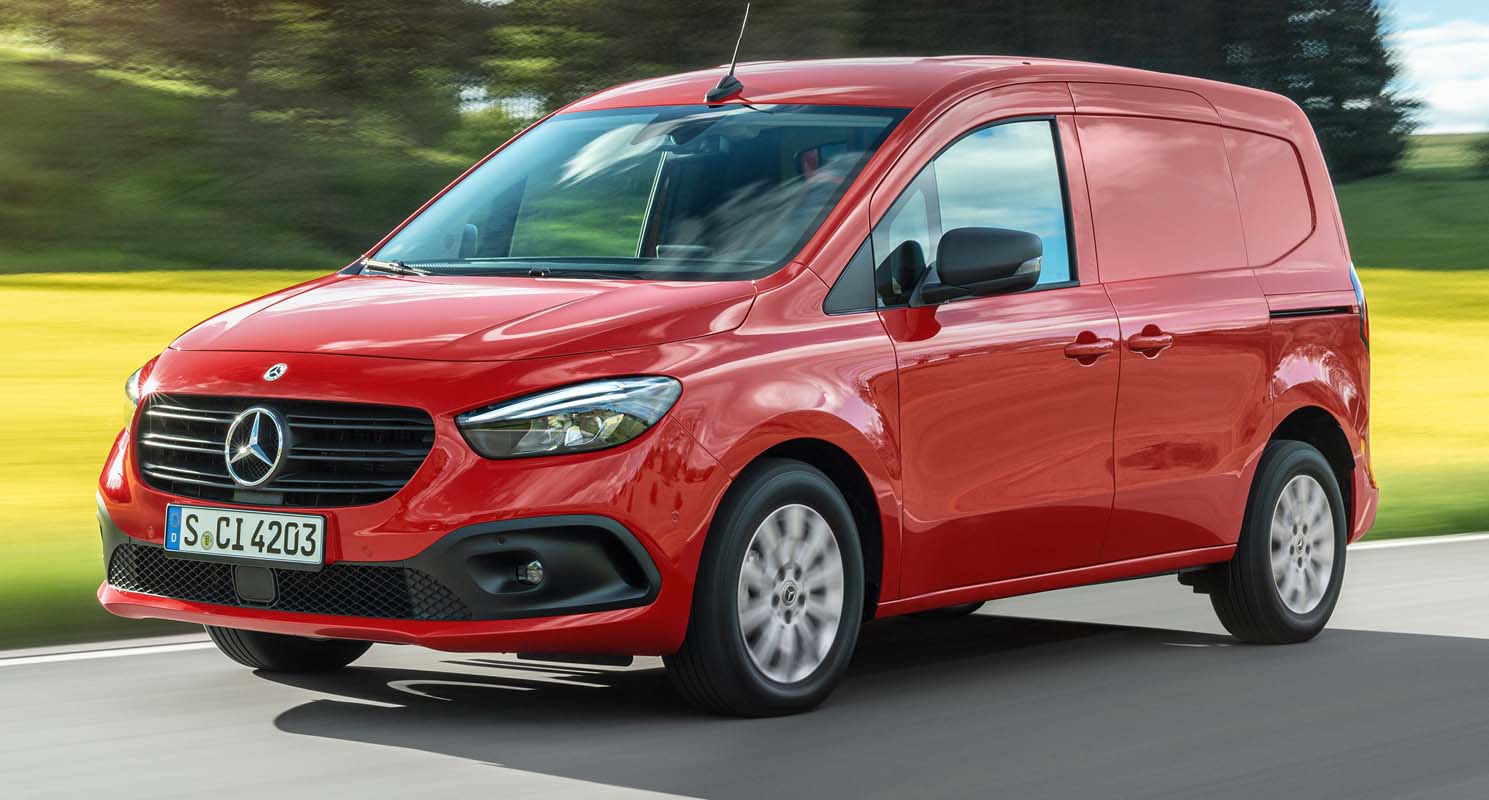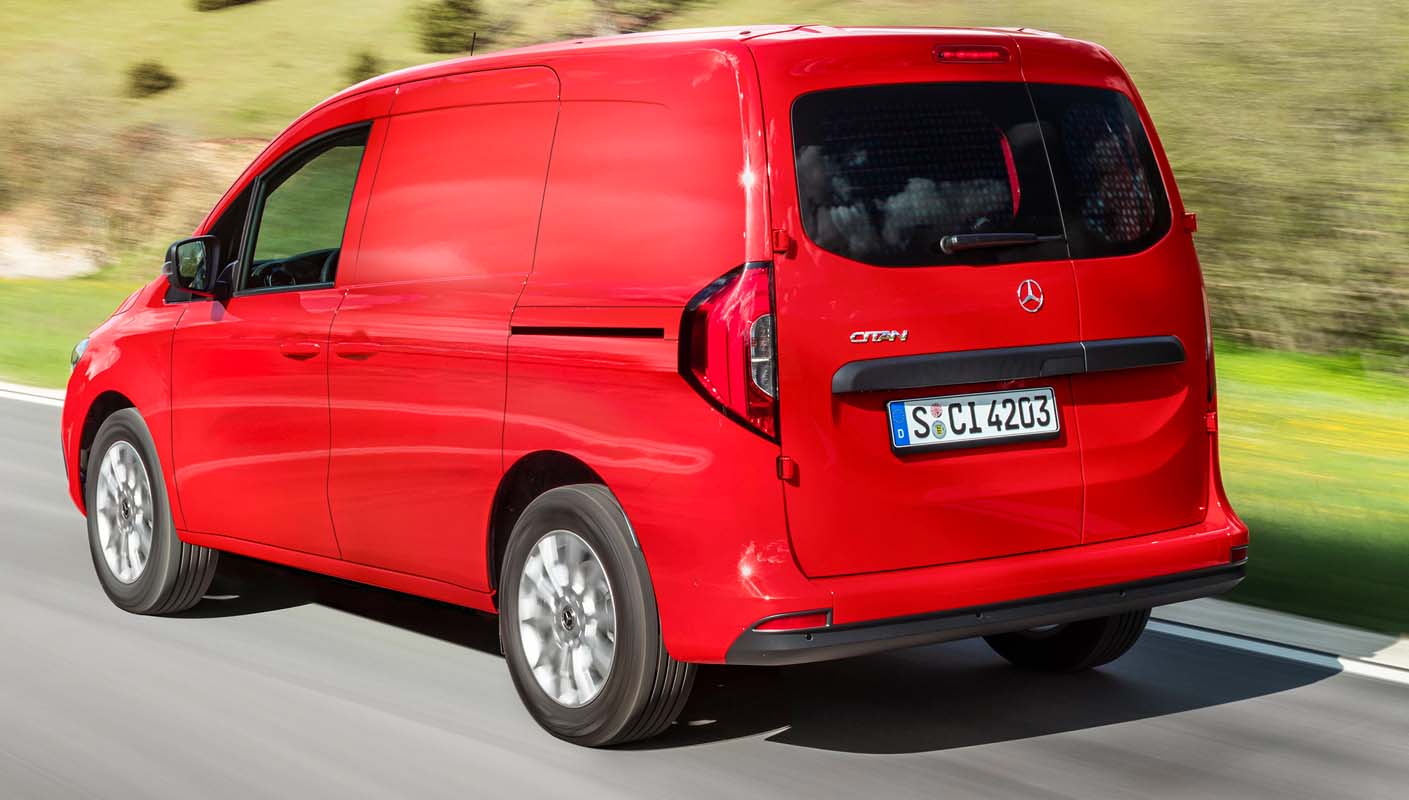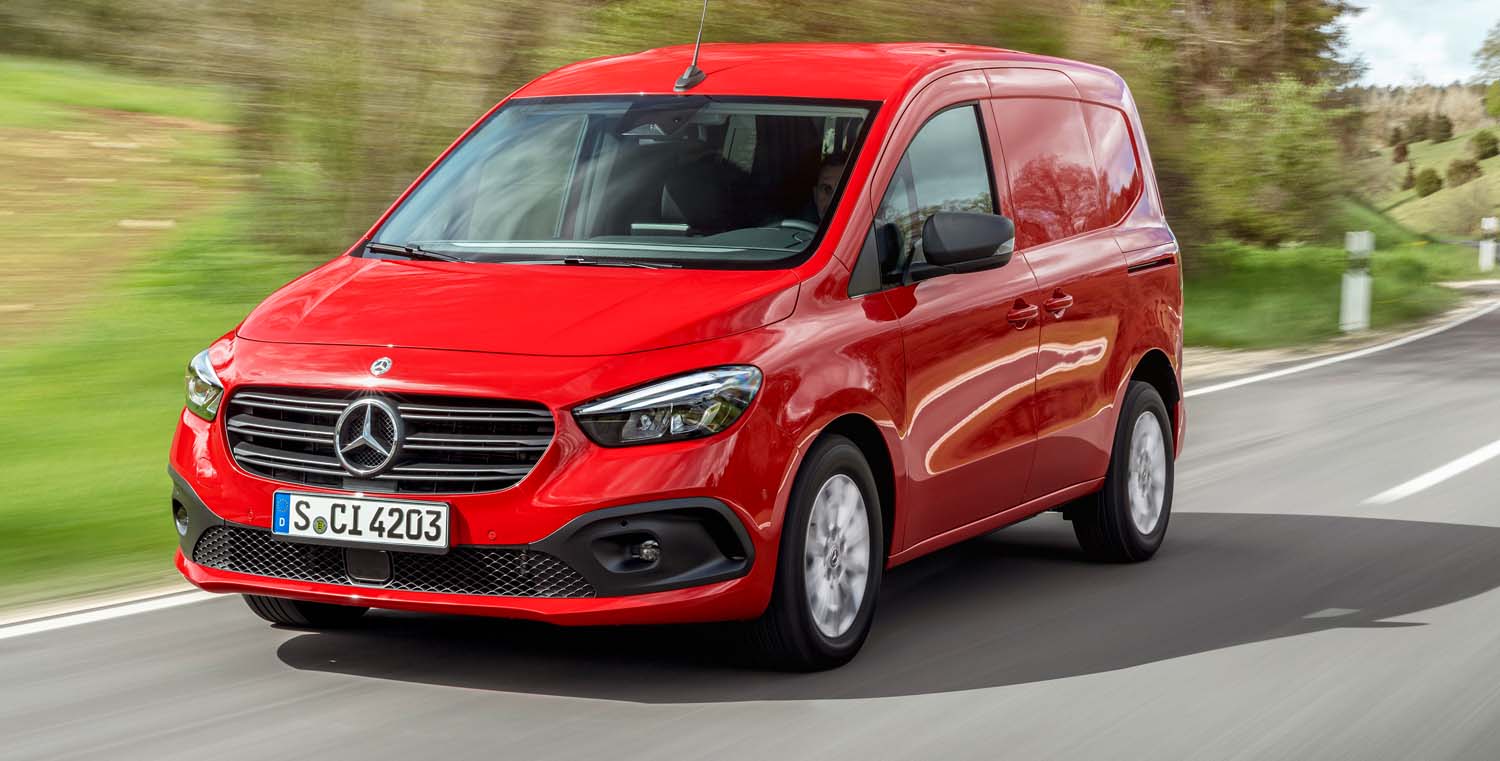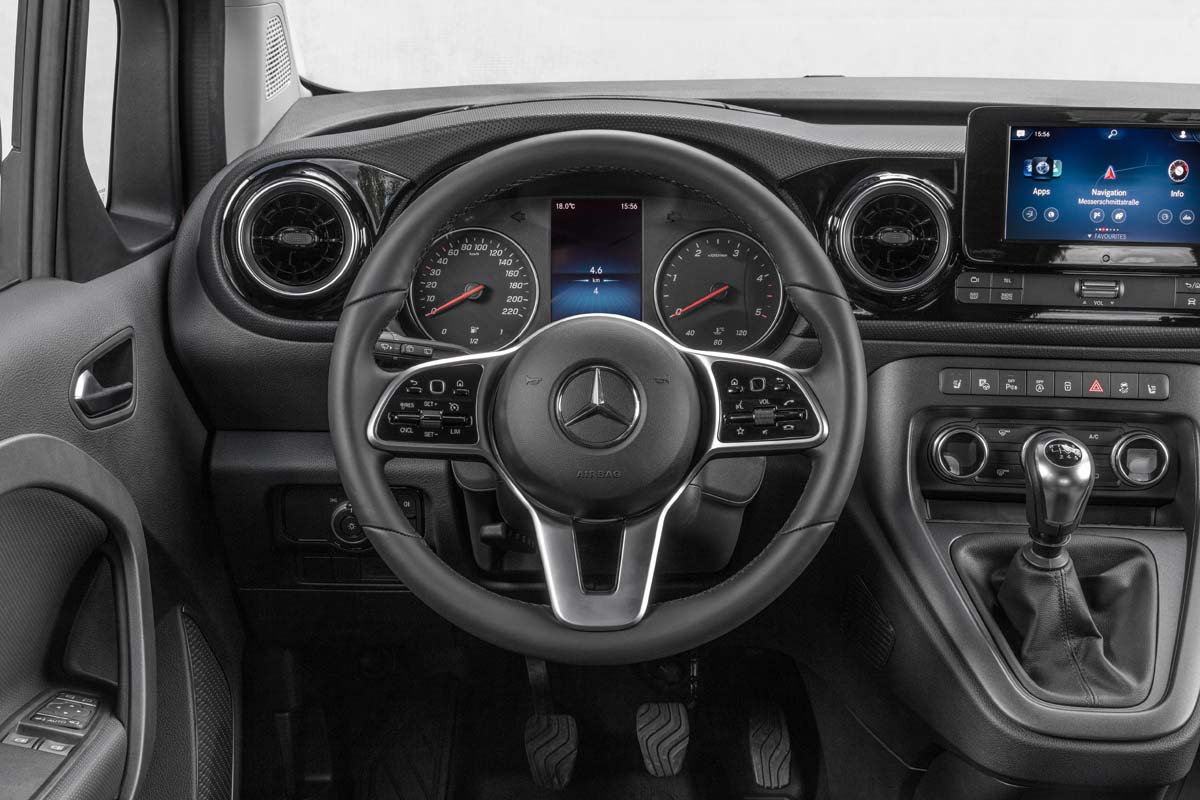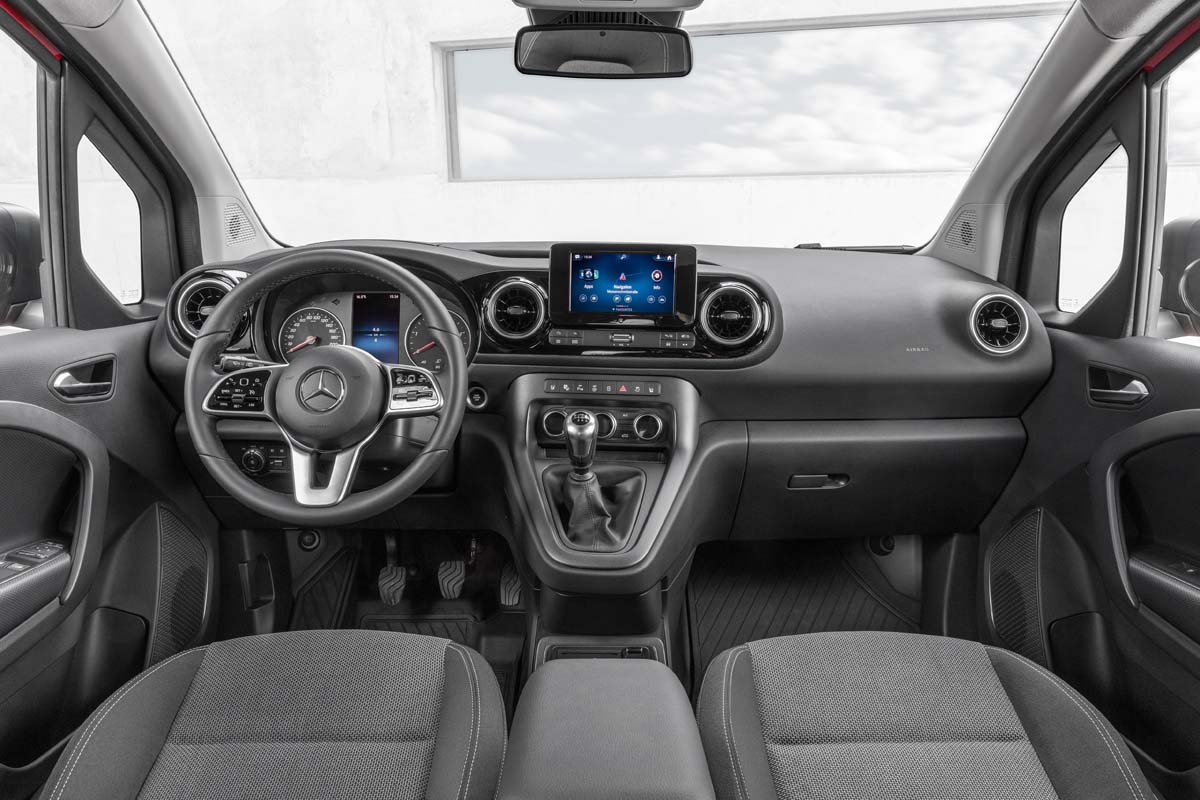
Compact external dimensions coupled with a generous amount of space and a high load capacity open up a diverse range of applications for the new Mercedes-Benz Citan, especially in inner-city delivery and service provision operations. It is available both as a Panel Van and a Tourer. Wide-opening sliding doors on the left and right sides of the vehicle, as well as a low loading sill optionally enable comfortable access to the interior and easy loading of the vehicle. Inside, passengers will enjoy the comfortable seats of the Citan Tourer. In addition to its high functionality and variability, the vehicle provides comprehensive safety equipment and a high level of driving comfort. The new Citan compact van can be ordered from mid-September 2021 with a starting price expected to be less than 23,800 euros. The net list price of the basic model is thus anticipated to start at less than 20,000 euros.
“With the Sprinter and Vito, we are successfully present in the large and mid-size van segments. And the new Citan in the small vans segment will round off our portfolio. It was entirely re-developed by professionals for professionals. From its unmistakeable design to its driving characteristics, not to mention its safety and connectivity systems, the Citan bears the DNA of a Mercedes-Benz,” says Marcus Breitschwerdt, Head of Mercedes-Benz Vans. “At the same time, the Citan is also the last new vehicle project for commercial customers at Mercedes-Benz Vans to use a combustion engine. All future new developments will exclusively be available with an electric drive. A logical step of this consistent electrification is thus the new eCitan.”
The design of the new Mercedes-Benz Citan is distinguished by balanced proportions and a sensual surface design. Muscular shoulders and striking wheel wells underline the vehicle’s power and emotive appeal – unusual styling elements for a small van. “At first glance, the new Citan is clearly discernible as a member of the Mercedes-Benz family. The clear shapes with reduced lines and powerful surfaces impart our philosophy of sensual purity,” explains Gorden Wagener, Chief Design Officer at the Daimler Group.
A particularly eye-catching aspect in the interior is the spirited, horizontal shape of the instrument panel. The Mercedes-Benz designers sought their inspiration for the full-bodied, voluptuously curved volume of the instrument panel support from the profile of a wing. A decisive aspect here was the continual, horizontal positioning. The narrow wing stretches across the interior and makes for a generous feeling of space. The instrument unit itself is cut out of this. Their shape is reminiscent of an eroded stone. The resulting slot between the wing and the stone makes for a practical stowage compartment for rapid access to important utensils.
A multitude of possible uses and comfortable loadin
The Mercedes-Benz Citan combines compact exterior dimensions (length: 4498 mm) with a generous amount of space. Thanks to a number of different versions and practical equipment details, it offers plenty of different usage possibilities and convenient loading. The Citan will be launched on the market as a Panel Van and a Tourer. Later there will be further variants with a long wheelbase as well as a Mixto version. But even in the short wheelbase variant (2716 mm), the Citan offers much more space compared with the predecessor model – on the Panel Van, for example, the load compartment length is 3.05 metres (with the flexible partition wall).
Sliding doors are a practical feature, especially in tight parking spaces. The new Citan is available with up to two sliding doors. They offer a wide opening on both sides of the vehicle measuring 615 millimetres. The height of the load compartment opening is 1059 millimetres (both figures represent the clearance). At the rear, too, the load compartment is easily accessible: the loading sill of the Panel Van sits at a height of 59 cm. Meanwhile, the two sections of the rear doors can be blocked at an angle of 90 degrees and can even be moved through 180 degrees to the sides of the vehicle. The doors are asymmetrical, whereby the left-hand door is wider and has to be opened first. As an option, the Panel Van can also be ordered with rear doors featuring heated windows and a windscreen wiper. Upon request, a tailgate is also available which equally features these two items of equipment.
The Tourer already comes as standard with a tailgate featuring a rear window. As an alternative, it is also available with rear doors. The rear bench seat can be folded down in the ratio of 1/3 to 2/3. Numerous stowage spaces and compartments facilitate everyday use of the Citan.
Besides the fixed partition wall (available with and without window) between the driver’s cab and the load compartment, the Citan Panel Van is also available with a folding variant. This option has already proven its worth in the predecessor model and has since been further optimised. If long objects need transporting, this grille on the co-driver’s side can be swivelling through 90 degrees, before being folded in the direction of the driver’s seat and locked in place. The co-driver’s seat can be folded to create a level surface. The load protection grille is made of steel and serves to protect the driver and co-driver from the load.
Travelling to the building site early in the morning, driving through tricky stop-start traffic, or providing shuttle services at the airport – as a driver of a small van, you know your working day can be hard-going. But thankfully, the Mercedes-Benz Citan developers placed great emphasis on achieving a level of comfort typical of the brand, including exemplary noise levels and seating comfort, not to mention a range of practical equipment items. And this doesn’t just help drivers’ well-being, but is also particularly beneficial to safety: relaxed drivers can concentrate better on the traffic situation. To ensure that’s the case, the vehicle is also equipped with comfort and convenience systems familiar from passenger cars, including THERMOTRONIC, KEYLESS-GO starting function and the electric parking brake1.
The Panel Van and Tourer will also be available in the BASE and PRO equipment lines. With the BASE Line, the customer receives a functional entry-level variant with all of the necessary basic equipment. The PRO Line combines a representative design with additional functionality.

Modern and economical engines
At market launch, the engine range of the new Citan will be formed by three diesel and two petrol models. Shared strengths of all these are great driveability even in the low rev range and economical consumption values. For even faster acceleration, for example when overtaking, the 85-kW version of the diesel engine available for the Panel Van features an overpower/overtorque function. Up to 89 kW of power and 295 Nm of torque can be called up briefly.
The power units fulfil the Euro 6d emissions norms. All engines are combined with an ECO start/stop function. Alongside the six-speed manual transmission, the most powerful diesel and petrol models are also available with a seven-speed dual-clutch transmission (DCT).
The eCitan will launch in the second half of 2022. This fully electric model variant of the Citan will extend the electrically powered commercial vehicle portfolio alongside the eVito and eSprinter. The range is expected to be around 285 kilometres in accordance with WLTP. With this in mind, it corresponds to the needs of commercial users who often use this vehicle for courier and delivery services in inner cities. At rapid charging stations, the battery is expected to take 40 minutes to charge from 10 to 80 percent. A big advantage: when it comes to the dimensions of the load compartment, the payload and the availability of equipment, customer’s don’t need to make any concessions compared to a vehicle equipped with a conventional engine. Even a trailer coupling will be available for the eCitan.
Safe and comfortable driving characteristics, both when empty and when laden
The Mercedes-Benz development team placed particular emphasis on achieving brand-typical driving characteristics, defined as a balanced combination of ride comfort, driving dynamics and driving safety. The front wheels are suspended on a McPherson axle with wishbones at the bottom. At the rear, a space-saving torsion-beam axle is used. Trailing arms, ensure additional wheel guidance here, while the springs and shock absorbers are separate.
As part of the comprehensive scope of vehicle testing, the springs, shock absorbers and stabilisers of the Citan were carefully fine-tuned to one another. The Tourer is equipped with springs featuring a specific Mercedes-Benz springing rate and shock absorbers with appropriately tuned damping force at the front and rear axles. Thus, the Mercedes-DNA is even reflected in the Citan’s driving characteristics. A reinforced stabiliser on the front axle of the Citan Tourer reduces lateral tilting in bends.
Both when empty and when laden, the new Citan offers precise, safe and comfortable driving. The vehicle is not sensitive to high payloads. The Panel Van is optimised for a high payload. This means that even when heavily laden, it drives with great stability. The Tourer is optimised for passenger transport with a low load and is thus equipped with a greater emphasis on comfort.
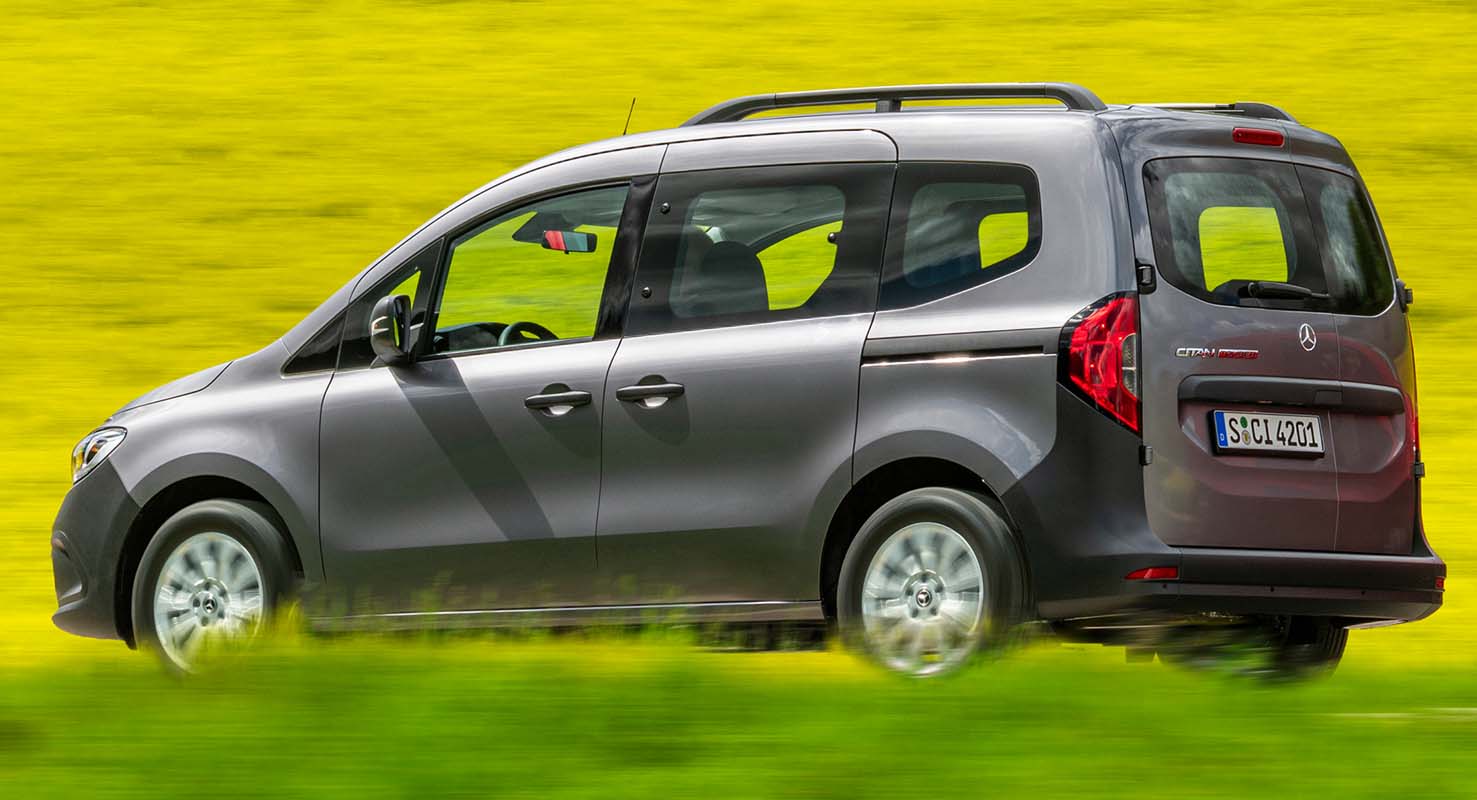
Comprehensive safety equipment
Safety is a key brand value at Mercedes-Benz. The robust body structure with its energy-absorbing dissipation paths contributes to the high level of safety, as do up to seven standard airbags and the extensive range of modern driving assistance systems. These can all support and relieve the driver in numerous situations.
“When co-ordinating the driving assistance systems our goal was to implement the philosophy of Mercedes-Benz Cars with regard to comfortable, harmonious interventions for a van too,” reports Dirk Hipp, Strategic Project Head and Chief Engineer for Small Vans at Mercedes-Benz. Smooth intervention that the customer initially hardly notices can be found in ESP, as well as in Hill Start Assist and Crosswind Assist.
Supported by radar and ultrasonic sensors as well as cameras, the driving assistance and parking systems observe the traffic and surroundings and, if necessary, can issue warnings or assist the driver by intervening. As in the new generations of the Mercedes C-Class and S-Class, Active Lane Keeping Assist uses steering interventions as opposed to braking and is thus particularly comfortable.
In addition to the legally required ABS and ESP systems the new Citan models are also equipped with Hill Start Assist, Crosswind Assist, the fatigue-warning system ATTENTION ASSIST and the Mercedes-Benz emergency call system as standard. The assistance systems on the Citan Tourer are even more extensive: in this model, Active Brake Assist, Active Lane Keeping Assist, Blind Spot Assist and Speed Limit Assist with traffic sign detection all come as standard to provide the driver with additional assistance.
Many other driving assistance systems are available on request, including Active Distance Assist DISTRONIC which can automatically take over driving in traffic jams, as well as Active Steering Assist. It helps the driver to keep the Citan in the centre of the lane.
The Mercedes-Benz Citan is also a pioneer with regard to restraint systems: the Citan Tourer, for example, is fitted with a centre airbag as standard which can inflate between the driver’s and co-driver’s seat in the event of a severe side collision. Altogether seven airbags can protect vehicle passengers. The panel van is equipped with six airbags as standard.
Intuitive display and operating concept with MBUX and digital services from Mercedes me
Various versions of MBUX are available on request for the new Citan. Among its strengths are the intuitive operating concept using the seven-inch touchscreen, Touch Control buttons on the steering wheel or the “Hey Mercedes” voice assistant. Further advantages are smartphone integration with Apple Car Play and Android Auto, the Bluetooth hands-free system and digital radio (DAB and DAB+).
Furthermore, the Citan is prepared ex works for the use of many digital services from Mercedes me connect. As a result customers are always connected with the vehicle regardless of where they are. Thus important information is always available to them both on-board and outside of the vehicle and they can make use of some helpful functions.
With Mercedes me, MBUX becomes even more intelligent and user-friendly. For example, “Hey Mercedes” works with natural speech: users therefore no longer need to learn specific commands. Other functions of Mercedes me connect include remote services such as Remote Retrieval of Vehicle Status. With that, customers can conveniently check the most important information about their vehicles at any time, from home or the office for example. Equally practical: thanks to Navigation with Live Traffic Information and Car-to-X communication, customers drive with the latest real-time data. This means that traffic jams can be efficiently avoided or valuable time can be saved.
Destinations can be entered as three-word addresses based on the what3word system (w3w). what3words is the easiest way to specify a location. As part of this system, the world is divided into 3×3-metre squares with an unmistakable three-word address – this can be a great help when searching for a destination, particularly in commercial operations.
